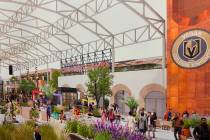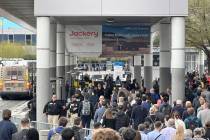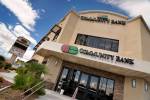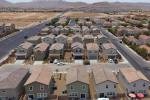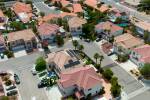Study: Banking not priority for low-wage earners
More than a quarter of all Nevada households have no bank account or only limited access to banking services, the Federal Deposit Insurance Corp. reported Wednesday.
A large portion of the unbanked and underbanked are minorities, according to a study by the FDIC and the Census Bureau.
In Nevada, 23.2 percent of black households and 12.1 percent of Hispanic households have no bank account. And 30.3 percent of black households in Nevada and 30.7 percent of Hispanic households are "underbanked."
Underbanked consumers have a checking or savings account but relied on nonbank products such as money orders, check-cashing services, payday loans, pawn shops or rent-to-own agreements at least once in the past five years, according to the FDIC.
Government officials and community leaders say that the unbanked and underbanked often run a greater risk of being robbed because they carry large sums of cash.
Adults without bank accounts also have no safe way to save money and no low-cost way to borrow small sums of money, they said.
The study showed that 71 percent of the unbanked households nationally have annual income less than $30,000.
Income, ethnic and demographic categories don't explain the whole problem, said George Burns, commissioner of the Nevada Financial Institutions Division.
"It's not necessarily about race," Burns said. "It's not about income. It's about financial education."
High schools teach students about global warming but provide little or no education on how to use a checking account, he said.
Many large regional banks offer low-cost or no-cost checking accounts with low minimum balances, Burns said, but they will close the account if the customer continually overdraws the account.
In an effort to improve financial education, banks often make presentations to public school classes and hold seminars for adults, Burns said.
"We're trying to improve access to traditional financial services," said William Uffelman, chief executive of the Nevada Bankers Association.
Uffelman worked with the Nevada labor commissioner's office to enable employers to pay workers with stated value cards that can be used like standard bank debit cards. Workers without bank accounts can use them like traditional debit cards to make purchases or to withdraw money from automated teller machines.
United Way is developing a model checking account that local and regional banks can adopt in an effort to get them to extend services to the unbanked, board Chairman Larry Seedig said. The product would have low balance requirements and low fees.
The Bank on Nevada program also would provide financial education to the unbanked, Seedig said. Similar programs have been implemented in San Francisco, Los Angeles and Phoenix, he said.
United Way and bankers believe the program will enable low- and moderate-income families to become stronger financially, he said.
"A basic savings account or checking account is very important in creating that financial stability," he said.
The FDIC study showed that 7.7 percent of households, or 9.9 million households, nationally are unbanked and 17.9 percent, or 21 million households, nationally are underbanked.
In Nevada, 6.9 percent of households do not have bank accounts while 20.5 percent of the households are underbanked.
Contact reporter John G. Edwards at jedwards@reviewjournal.com or 702-383-0420.













